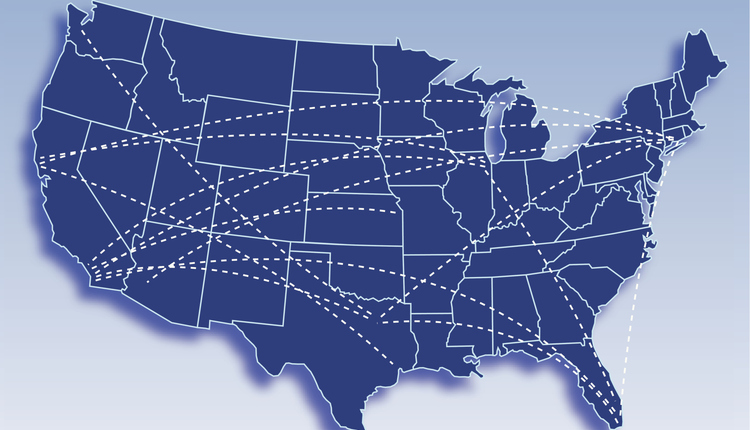Postcom.org's correspondent Kathleen Siviter, attending the postal distribution meeting of the IDEAlliance, reports the following:
PRC Chair Ruth Goldway today told attendees of the IDEAlliance Print Distribution conference that the Postal Service's proclamation that it will lose $238 billion over the next 10 years if nothing changes is an "unsubstantiated figure with no connection to reality." Goldway said the USPS is presenting dire forecasts to scare Congress into allowing the USPS to do the things it has wanted to do for years, such as moving to 5-day delivery, closing retail services and consolidating its network. She urged the IDEAlliance crowd to focus on more positive things like new product development ideas and going back to basics on initiatives such as IMb and FSS. "Panic is not the way to go," she said of the USPS' 10-year plan.
Goldway said that she thinks there is widespread traction in Congress for some fix on the USPS retiree health benefits fund issue. She said if Congress and the mailing community can continue to focus on working that out, it would take the immediate pressure off the Postal Service "and give us time to consider what is needed going forward."
The PRC Chair also discussed the likelihood of the USPS filing an exigent rate case to take effect January 2, 2011. She said the PRC expects the USPS to file something as soon as July 2, which would meet the 90-day advance notice the USPS had committed to giving its customers before a price change, or later if the USPS decides to either shorten that time frame or push the implementation date beyond Jan 2. Goldway confirmed that in an exigent case, the PRC can make changes to the USPS' proposal without the limitations that exist in a price cap case, and noted that in an exigent case the PRC has the final decision -- not the USPS Governors.
Goldway acknowledged, however, that she thinks some kind of exigent case will go forward, but said that dependent on the outcome, someone could sue and "let the courts decide" whether the case meets the intent of an exigent case under the PAEA. She said it is essential that mailers and their associations get involved and determine now the necessary resources to participate in the exigent rate case because "there will be serious, immediate issues on the table" to which industry will need to respond quickly.
From postcom.org
PRC Chair Ruth Goldway today told attendees of the IDEAlliance Print Distribution conference that the Postal Service's proclamation that it will lose $238 billion over the next 10 years if nothing changes is an "unsubstantiated figure with no connection to reality." Goldway said the USPS is presenting dire forecasts to scare Congress into allowing the USPS to do the things it has wanted to do for years, such as moving to 5-day delivery, closing retail services and consolidating its network. She urged the IDEAlliance crowd to focus on more positive things like new product development ideas and going back to basics on initiatives such as IMb and FSS. "Panic is not the way to go," she said of the USPS' 10-year plan.
Goldway said that she thinks there is widespread traction in Congress for some fix on the USPS retiree health benefits fund issue. She said if Congress and the mailing community can continue to focus on working that out, it would take the immediate pressure off the Postal Service "and give us time to consider what is needed going forward."
The PRC Chair also discussed the likelihood of the USPS filing an exigent rate case to take effect January 2, 2011. She said the PRC expects the USPS to file something as soon as July 2, which would meet the 90-day advance notice the USPS had committed to giving its customers before a price change, or later if the USPS decides to either shorten that time frame or push the implementation date beyond Jan 2. Goldway confirmed that in an exigent case, the PRC can make changes to the USPS' proposal without the limitations that exist in a price cap case, and noted that in an exigent case the PRC has the final decision -- not the USPS Governors.
Goldway acknowledged, however, that she thinks some kind of exigent case will go forward, but said that dependent on the outcome, someone could sue and "let the courts decide" whether the case meets the intent of an exigent case under the PAEA. She said it is essential that mailers and their associations get involved and determine now the necessary resources to participate in the exigent rate case because "there will be serious, immediate issues on the table" to which industry will need to respond quickly.
From postcom.org


